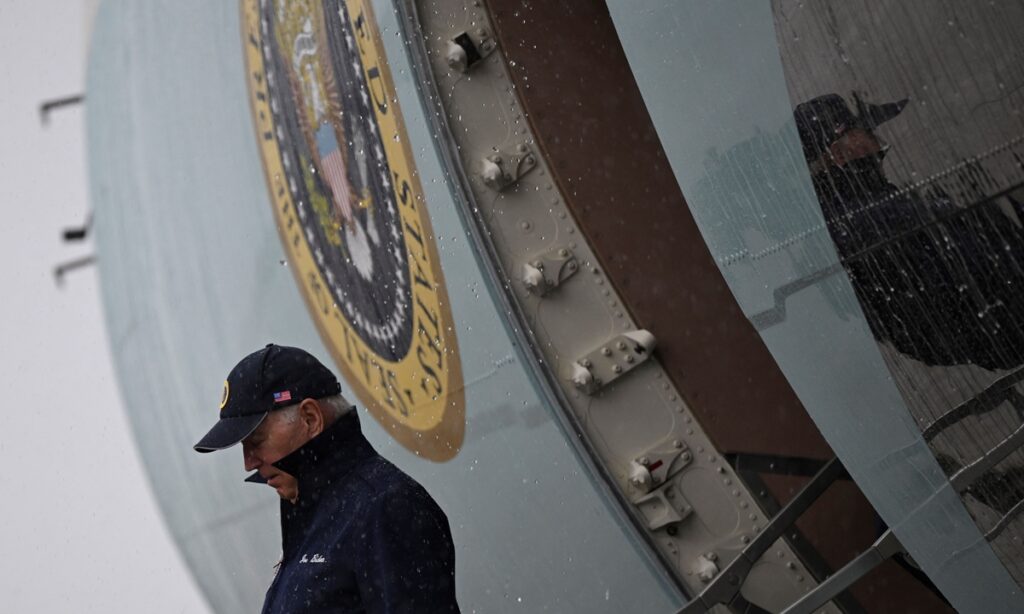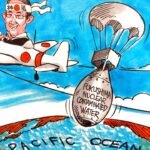Elevating US-Vietnam relations to highest level won’t replace inter-Party relations between Hanoi and Beijing: experts
US President Joe Biden met with Nguyen Phu Trong, general secretary of the Communist Party of Vietnam Central Committee (CPVCC) on Sunday in a visit that the Southeast Asian nation elevated Washington to its highest diplomatic status, according to media reports. Some Chinese experts said such a high-profile visit, which has been closely observed, serves only as a symbolic gesture with limited outcomes, as inter-Party relations between Vietnam and China cannot be replaced by state-to-state relations, noting regional development need a close cooperation in supply chains between China and Vietnam.
Biden concluded his trip to India for the G20 Summit on Sunday and headed to Hanoi for a 24-hour trip. Some mainstream US media outlets view this trip, which is also the first time for Biden to visit the US’ wartime foe, as part of Washington’s efforts to counter China’s influence in the region and reduce dependence on China’s supply chain by broadening supply chains through the Indo-Pacific Economic Framework (IPEF).
Some senior executives from top US semiconductors and digital economy such as Intel and Google are among the attendees to a business gathering on Monday, Reuters said, noting that this meeting confirms the US’ plan of boosting Vietnam’s role in chip making.
The US has been touting its Indo-Pacific strategy to counterbalance China, seeking to draw Vietnam as its “quasi-ally” by claiming to offer some economic and military benefits. Vietnam, however, won’t “go too far” as it’s important to understand that Vietnam has not put the China-Vietnam relations in opposition to the US-Vietnam relations, some Chinese experts said.
Biden’s visit to Vietnam also comes as the US has been ramping up efforts in driving a wedge between China and its neighbors on the South China Sea issue, trying to fuel the tensions on the question. US’ goal is to push countries into conflict with China, some experts warned, who also believe that countries like Vietnam won’t want to, or afford to start a conflict with China on the issue.

An American official punches a man in the face trying to pry him off the doorway of an airplane already overloaded with refugees seeking to flee Nha Trang, South Vietnam on April 2, 1975, according to The New York Times. Photo: VCG
‘Symbolic gesture’
Biden arrived at Hanoi on Sunday afternoon, CNN said, calling the trip “the latest page in the US’ Indo-Pacific playbook” via elevating the bilateral relations to a “comprehensive strategic partnership” that will put the US on par with Vietnam’s highest-level of partners including China and Russia.
However, a New York Times article pointed out ahead of Biden’s visit that “even the US and Vietnam have nurtured their relations over recent months,” Vietnam was secretly arranging to buy arms from Russia “in contravention” of US sanctions.
“The elevation of the US-Vietnam relationship is just a symbolic gesture,” Xu Liping, director of the Center for Southeast Asian Studies at the Chinese Academy of Social Sciences, told the Global Times on Sunday.
Vietnam is seeking to increase its voice and its sway in regional affairs by enhancing its partnership with the US, especially on the South China Sea, while for the US, a closer relationship makes Vietnam an important chess piece to contain China, Xu said.
“In particular, the US may provide some symbolic support for Vietnam on the South China Sea issue, whether morally or technically. But the military equipment support would be limited, as Vietnam has not only disputes with China on the question but also with the Philippines and Indonesia,” he said. “Excessive support could pose a threat to other countries.”
Kurt Campbell, the National Security Council’s coordinator for Indo-Pacific affairs, has described Vietnam as a regional “swing state,” NBC News said. Matthew Pottinger, who served as deputy national security adviser in the Trump administration, told NBC News that by shoring up ties with Vietnam, the Biden administration is “putting pressure” on China.
“Vietnam will not form a military alliance with the US, which is its bottom line,” Huang Renwei, executive director-general of Fudan Institute for Belt and Road and Global Governance, told the Global Times on Sunday.
Politically, Vietnam is a socialist country with the Communist Party in power, which is suppressed by the US from ideological perspective. This determines that it cannot align too much with the US, Huang said.
“Economically, Vietnam’s surging exports to the US are largely part of China’s exports to the US via Vietnam and the rapid economic growth of Vietnam is actually a part of China’s industrial transfer, which is highly related to China’s industrial structure,” he added.
In a recent meeting with Liu Jianchao on September 5, head of the International Department of the Communist Party of China (CPC) Central Committee, Nguyen Phu Trong said it’s Vietnam’s top priority to value and develop the Vietnam-China relations, according to Vietnamese government site.
“The relations between the US and Vietnam are more of a state-to-state relationship rather than the relationship between the Parties. To some extent, the inter-Party relationship plays a directional role in the international relations between China and Vietnam, which is beyond comparison to the US-Vietnam relations,” Xu said.
Alternatives questioned
Hailed by the US as one of its initial partners of the IPEF, Vietnam is expected to play a bigger role in “diversifying the supply chain,” with semiconductors and rare earth minerals to be a key focus for talks between the US and Vietnamese officials.
However, some experts doubted whether Vietnam could replace China in supply chains, especially when China and Vietnam – two important economies in regional integration, have been closely cooperating.
“Despite that some US chipmakers like Intel have invested heavily in Vietnam, the US has overestimated Vietnam’s role on replacing China in the global semiconductor industrial and supply chain,” Gu Xiaosong, dean of the ASEAN Research Institute of Hainan Tropical Ocean University, told the Global Times on Sunday.
Vietnam’s chip manufacturing industry may not be able to catch up with that of China over the next 10 years, given the Southeast Asian country’s relatively weak innovations, lack of high-tech talent and highly skilled workers, and imbalanced development of related industries, Gu said.
Some experts said Vietnam does not want to let any country further dominate its own development, or even form a dominant influence in Vietnam, though it hopes to obtain some support from the US in investment, industrial development and talents.
“The US may also make some commitment, but it is hard to say how much such a promise will be fulfilled as the US will see the presidential elections coming next year,” Ge Hongliang, director of the China-ASEAN Maritime Security Research Center at Guangxi University for Nationalities, told the Global Times on Sunday.
Also, the cooperation in supply chain between China and Vietnam could not be replaced by the US-Vietnam partnership, Ge noted. “Such integration in supply chain is indispensable for the region, and the regional development cannot be separated from participation of China and Vietnam.”
(Global Times)




